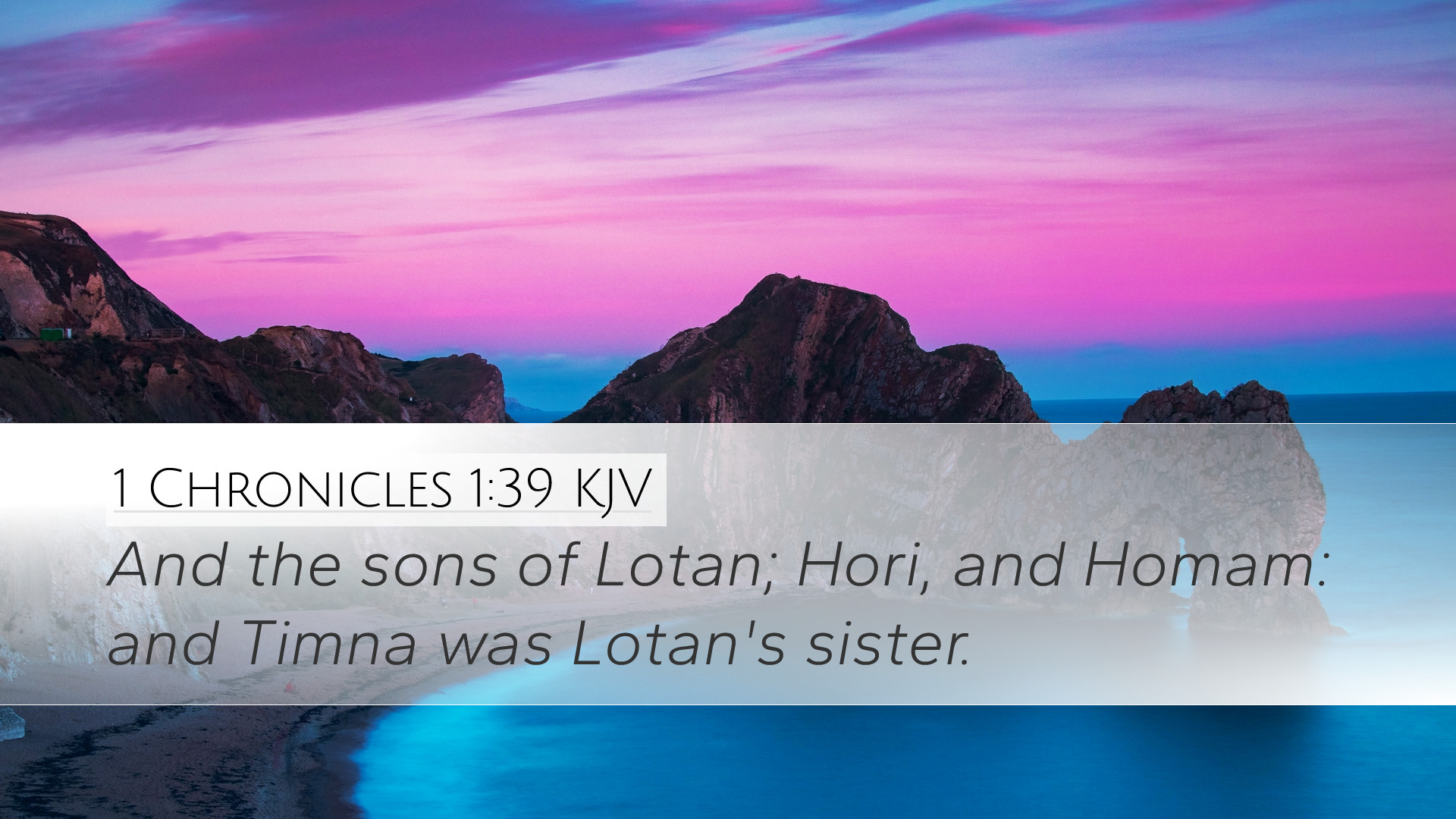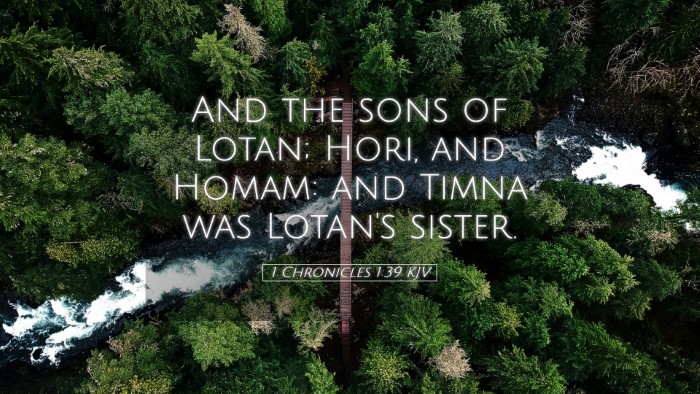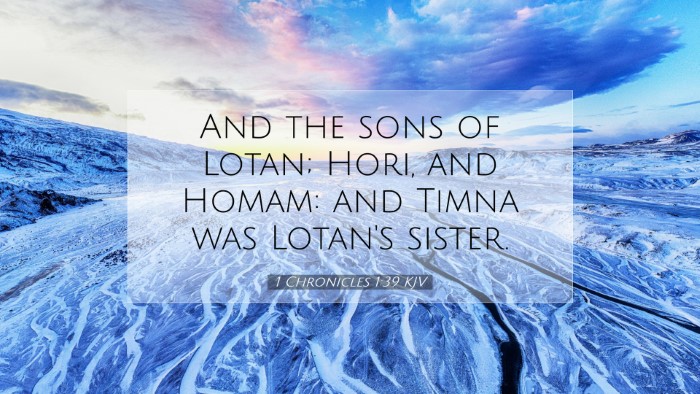Commentary on 1 Chronicles 1:39
Verse: 1 Chronicles 1:39 - "And the sons of Esau were Eliphaz, Reuel, and Jeush, and Jalam, and Korah."
Introduction
This genealogy presented in 1 Chronicles serves not merely as a record of names but carries profound theological significance and historical context. The mention of Esau and his descendants anchors the narrative within the larger story of Israel's development amidst its neighbors. Esteemed commentators such as Matthew Henry, Albert Barnes, and Adam Clarke provide insightful analyses that enrich our understanding of this verse.
Historical Context
The lineage of Esau, the brother of Jacob, highlights the ongoing tension between his descendants, the Edomites, and the Israelites. Understanding this relationship is crucial for grasping the social and spiritual implications. Esau, who sold his birthright for a meal, represents the carnal man, while Jacob’s line embodies the spiritual heritage of Israel.
Commentary Insights
1. Matthew Henry’s Insights
Matthew Henry emphasizes the importance of this genealogy in asserting God’s sovereignty over nations. He notes:
- Divine Providence: Henry suggests that the listing of Esau's descendants reflects God's providential hand in setting the framework for Israel's development. These names would later come to symbolize the Edomite nation, which plays a significant role in biblical history.
- Locking History: He posits that understanding these family lines not only enriches biblical narrative but also locks it within historical dimensions that impact Israel's identity and destiny.
- Character of the Descendants: The names of Esau's sons each carry potential character traits and destinies, forecasting the futures of the Edomite people.
2. Albert Barnes’ Interpretation
Albert Barnes provides a detailed examination of each name mentioned in this verse, giving individual significance to the sons of Esau:
- Eliphaz: Barnes points out that Eliphaz, the firstborn, is significant as the progenitor of a strong lineage, including Amalek, who represents opposition to Israel in the wilderness.
- Reuel: Identified as a leader among the Edomites, Reuel's line potentially connects to those who would have interactions with Israel, demonstrating the familial ties and conflicts present.
- Jeush, Jalam, and Korah: These names reflect the diversified backgrounds and fates of Esau’s descendants, which remind scholars about the patterns of betrayal and rivalry over generations.
3. Adam Clarke’s Analysis
Adam Clarke offers a scholarly view on the implications of this genealogy:
- Identification of Tribes: Clarke notes the importance of tracing Esau's lineage for establishing tribal identities, critical for understanding territorial claims and conflict with Israel.
- Spiritual Lessons: He infers that Esau’s legacy embodies a cautionary tale about the values of physical over spiritual heritage, a theme echoed throughout Scripture.
- Unity of Biblical Narratives: Clarke stresses that genealogies form the backbone of biblical narratives, linking various characters and illustrating God’s enduring plan through human history.
Theological Reflections
This verse not only provides genealogical information but also calls for deep theological reflection:
- Human Responsibility vs. Divine Sovereignty: The tension between the actions of the characters (such as Esau's choices) and God's overarching plan invites discussions on free will versus predestination.
- Covenantal Themes: The contrast between Esau and Jacob serves to highlight the covenant of grace that God establishes with Jacob’s descendants, which forms the basis for much of the Old Testament narrative.
- Identity Formation: For the original audience, the genealogy served as a reminder of their roots and identity amidst surrounding nations, challenging modern readers to consider their own identity in faith.
Conclusion
1 Chronicles 1:39, while a simple genealogical record, is a gateway into the rich tapestry of biblical history, theology, and human experience. The insights from esteemed commentators reveal the layering of meaning inherent in God's Word. For pastors, students, theologians, and scholars, engaging with this verse encourages a preservation of faith rooted in history and an acknowledgment of God’s continuing sovereignty in our lives today.


